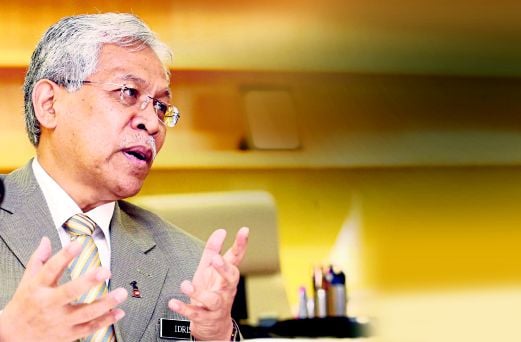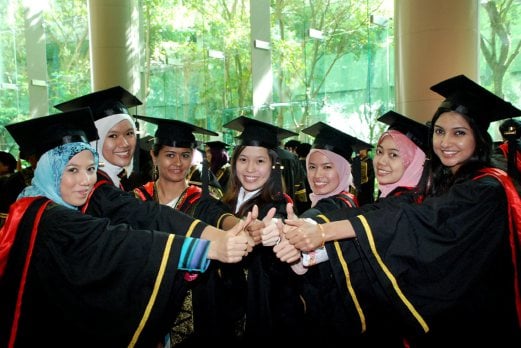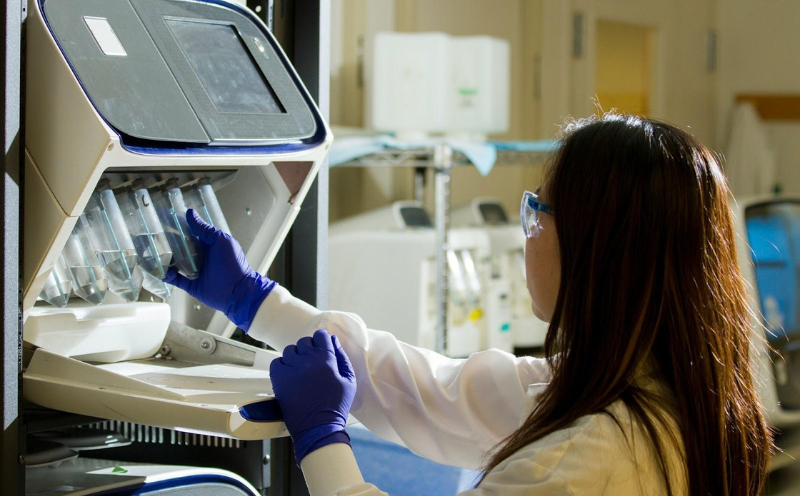PUTRAJAYA: THE government will push ahead to raise the quality of higher education in Malaysia, with the aim of making one or two universities equal to Cambridge or Oxford University in 20 to 30 years.
“Knowing how important education is, we promise Malaysians to deliver the best education that we can,” said Higher Education Minister Datuk Seri Idris Jusoh.
He told the New Straits Times that the tertiary education sector in Malaysia is being strengthened and its progress is on track, particularly in terms of performance and ranking.
“The way we are soaring upwards, I believe in 20 to 30 years, we will be able to stand alongside the likes of Oxford, Cambridge and Harvard,” he said.
In the wide-ranging interview at his Higher Education Ministry (MOHE) office in Putrajaya, Idris also spoke on the following:
THE moratorium on new colleges and universities remains;
MOHE will allow “gap years” for university students;
UNIVERSITIES must not be too obsessed with rankings;
MOHE will not and cannot micro-manage public universities any more;
PUBLIC universities cannot be too dependent on government funding, with the amount to be reduced gradually to 70 per cent; and,
EDUCATION Malaysia Global Services has been offering online applications for foreign students since January, with visas given for the duration of study and no longer a yearly renewal.
Idris also spoke about recent achievements by local universities and students.
“Our debaters emerged champions at the Cambridge Intervarsity Debating Competition (Cambridge IV) last year. And recently in Perth, at the Australasian Intervarsity Debating Championship (Australs), where we were the first Asian team to take the top spot after 41 years.
“Our ranking is going up. We are going to have two top 100 universities by 2025, meaning higher rankings in term of subject, university position and even country,” he said.
As for the employability of Malaysian graduates of local universities and institutions of higher learning, those who completed Technical Vocational Education and Training (TVET) programmes seem to be doing better, with TVET graduates seeing a 97.4 per cent employability rate compared with public and private institutions and polytechnics, which have an average of 76.1 per cent.
But, according to Idris, this issue is being addressed through numerous initiatives that would produce holistic, entrepreneurial and balanced graduates.
“If you look at universities today, you will observe that there are changes in how programmes are carried out.
“If before there were no programmes to give in-depth insight into industries, now, we have the CEO Faculty Programme, where chief executive officers come on campus for 20 to 30 hours per year as icons for students and to share their knowledge, experience and best practices with lecturers, who would then be able to relook the existing curriculum and formulate new ways of teaching that would ensure a rise in the employability of students,” he said.
He said this initiative will reduce the mismatch in the supply and demand of the job market.
Another initiative is the 2u2i Programme, a work-based learning programme where students learn for two years at a university and work two years to gain experience in an industry.
It has been implemented in Universiti Malaysia Kelantan in its entrepreneurship programme and Universiti Putra Malaysia in its plantation-related programme.
Universiti Sultan Zainal Abidin in Terengganu will implement the 2u2i concept in its accountancy programme.
“With real-life experience in the industry gained during their degree programme, there will be no issue of employers questioning their work experience after graduating.
“Say, for instance, students study animal science. They would have ample experience handling livestock (upon graduation). Or, for plantation management, they would have two years of that already in real life. It’s the same with students of entrepreneurship; they would have spent two years learning and working with actual entrepreneurs.
“We will be increasing more entrepreneurship programmes at universities to encourage this,” said Idris.
In addition, there is also a change in evaluation, where, through the implementation of iCGPA (integrated cumulative grade point average), it is no longer just based on academic achievement, but also participation in co-curricular, social and voluntary activities.
“This is a first in the world because we believe that we should not measure students’ achievement through academic performance alone, but also how they interact and communicate, their entrepreneurial and practical skills, and their values and ethics to ensure that they become holistic, as stipulated in the first shift in the National Higher Education Blueprint 2015-2025,” he said.
He also highlighted an improvement in student performance in the Malaysian University English Test for the 2015/2016 academic session. There is an increase of 27.85 per cent for those who scored Band 3 and above, compared with the previous session’s performance.
“So, with the CEO Faculty Programme, the 2u2i Programme, iCGPA, entrepreneurship programmes and improvement in English language (proficiency), I believe graduate employability will be better.
“But the impact will not be seen immediately as it will take four years at least for those who undergo all these programmes to graduate from university,” he said.
Flexibility in education is another focus that the ministry is stressing on.
In a recent meeting with vice-chancellors earlier this month, Idris said attendees discussed ways to make education accessible to all without needing to be present physically at universities.
“We talked about how technology can be adopted to make education more flexible via online means, for example.
“And, that students can get a degree without having to spend the full length of the programme in full semesters consecutively, where there could be leeway to do a gap year during their studies. We also plan to introduce credit for volunteerism,” said Idris.
He revealed that the attendees were cognizant of the trend where students may have their first year of study in the United States, the next semester in London and the next in Istanbul.
“There are universities doing all that. Perhaps we won’t adopt all the concepts, but we’re looking to make education more flexible,” he said.











